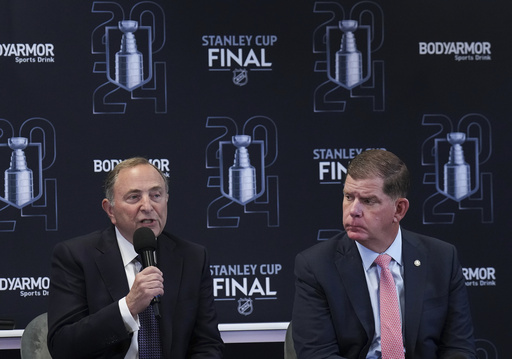
The current collective bargaining agreement (CBA) in the NHL will remain in effect until September 15, 2026, but discussions for a new agreement are anticipated to commence in early 2025. This proactive approach marks a shift from previous labor negotiations within the sport.
Earlier this week, Commissioner Gary Bettman expressed his expectation for talks with the NHL Players’ Association to kick off in February, coinciding with the 4 Nations Face-Off event, which exemplifies growing collaboration in hockey. Both parties are prepared to address various concerns and propose changes, but the optimistic outlook stems from the league’s current trajectory and the strong relationship between Bettman and union executive director Marty Walsh, particularly given the NHL’s history of three labor disruptions in the past thirty years.
Bettman is currently surveying team owners and general managers, while Walsh is engaging with over 700 players to identify their main concerns ahead of negotiations. Significant aspects such as the existing salary cap system and the 50/50 revenue split are generally expected to remain unchanged. Additionally, there is already a commitment to include NHL players in the upcoming Olympic Games in 2026 and 2030, limiting the number of topics to discuss.
The focal point of the discussions will shift from revenue sharing to enhancing overall revenue for both players and owners. With new media rights deals in the U.S. and an upcoming deal in Canada, along with additional revenue streams from events like the 4 Nations and various advertising partnerships, league revenues are reaching record levels. Despite this positive trend, certain contentious points will likely arise.
For instance, expansion fees, which have significantly bolstered owners’ coffers, raised questions about their impact on hockey-related revenue that is shared with players. Although Bettman has stated there are no current plans to expand beyond the existing 32 teams, interest persists from ownership groups in cities such as Atlanta, leading to potential discussions regarding revenue sharing.
The salary cap is determined by hockey-related revenue, which includes ticket sales and broadcast income. Currently, the cap stands at $88 million per team, with expectations for it to reach $92.5 million for the next season. There is ongoing dialogue regarding the possibility of facilitating a faster increase in the cap to elevate player salaries across the league. Bettman noted a preference for a “smooth and steady” approach, emphasizing that substantive discussions have yet to start. Meanwhile, Walsh indicated that players are keen on seeing a rise in the cap as it could benefit all players, not just the top earners.
The extension of the CBA in 2020 included measures on the escrow taken from players’ salaries to maintain the equitable revenue split, and something similar is anticipated to be a topic during discussions. According to Trevor van Riemsdyk, alternate player representative for the Washington Capitals, there will be a mixture of priorities as players may have differing interests based on their contract situations.
From the league’s perspective, there may be requests regarding long-term injured reserve rules and the extent of salary cap overages. Other potential topics from the players’ side may include pension enhancement, medical care provisions, and authority over surgeries and the extended playing schedule that lasts until late June.
The NHL’s history has shown that work stoppages are not uncommon, with significant disruptions occurring in 2004-05 and during the 2012-13 season. However, the earlier initiation of this negotiation process sparks optimism that a resolution could be reached by late spring or early summer, prior to the official deadline. Bettman believes Walsh’s professional experience will contribute positively to the discussions, emphasizing the necessity of collaboration for collective benefit.
Walsh, who has previously held roles as a federal labor secretary and Boston mayor, is navigating his first CBA negotiation. His predecessor, Don Fehr, notably managed the 2012-13 and 2020 negotiations. Van Riemsdyk expressed confidence in Walsh’s capabilities to effectively advocate for players’ priorities.
Walsh indicated that hockey is entering a revitalized phase devoid of daily labor negotiations, and Bettman warned against establishing arbitrary timelines for reaching a new deal. The NHL’s current position is bolstered by the quality of play and robust business metrics, making it counterproductive for anyone involved to disrupt the ongoing momentum. Walsh remarked on the league’s significant financial and audience success over the past year, highlighting that entering negotiations from such a favorable point is advantageous.
